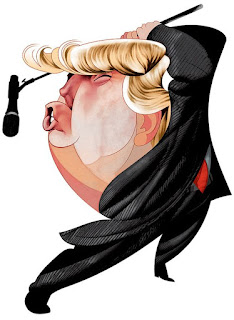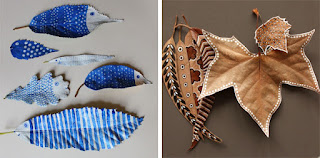Friday, December 15, 2017
Thursday, December 7, 2017
Wednesday, December 6, 2017
Thursday, November 30, 2017
Tuesday, November 14, 2017
What makes a portrait interesting?
Creative Portraits
 |
| Frida Kahlo |
 |
| Titus Kaphar |
 |
| Kehinde Wiley |
Find a photograph of a person you want to draw
realistically. Draw yourself, a relative, celebrity…whoever you want. Make sure you are a using a clear image for a
reference. Send me the image you have chosen.
The drawing of the person will be in pencil. A value drawing. The background should add interest and/or
meaning to your portrait. We talked
about Frida Kahlo, Titus Kaphar, and Kehinde Wiley and the way their unique
artistic voice is conveyed in each work of art.
What does your artistic voice look like?
Have fun or be serious. Your choice.
What
you need to think about when working on your drawing…
|
1.
Proportions correct
(division of facial features), size and shape of all features correct, value
added to show light source, evidence of patience, thoughtful decision making
|
2.
Craftsmanship (neatness,
not rushed, care taken with paper), all marks on paper necessary and helpful to
portray face
|
3.
Dramatic, creative
background that adds meaning in interest to the portrait
|
4.
Used class time wisely,
conduct in class is respectful and kind
|
Monday, November 6, 2017
Wednesday, October 25, 2017
Friday, October 13, 2017
Friday, October 6, 2017
Wednesday, October 4, 2017
Tuesday, October 3, 2017
Bridget Riley and Op Art
...Op Art captured the imagination of the public and became part of the swinging sixties. The fashion, design and advertising industries fell in love with its graphic, sign-like patterns and decorative value. Op Art was cool, and Bridget Riley became Great Britain’s number one art celebrity.
The basis of the Op Art movement was a form of geometric abstraction, which was in a way impersonal and not obviously related to the real world.
 “I couldn’t get near what I wanted through seeing, recognizing and recreating, so I stood the problem on its head. I started studying squares, rectangles, triangles and the sensations they give rise to… It is untrue that my work depends on any literary impulse or has any illustrative intention. The marks on the canvas are sole and essential agents in a series of relationships which form the structure of the painting.” (Bridget Riley)
“I couldn’t get near what I wanted through seeing, recognizing and recreating, so I stood the problem on its head. I started studying squares, rectangles, triangles and the sensations they give rise to… It is untrue that my work depends on any literary impulse or has any illustrative intention. The marks on the canvas are sole and essential agents in a series of relationships which form the structure of the painting.” (Bridget Riley)Finding VALUE in Pumpkns
Of course pumpkins have value, they have a beautiful color, without them what would fall and Halloween be??? So pumpkins are valuable, but where can we see the Element of Design VALUE in them? When you have completed all of your warm-up VALUE exercises, do a pencil sketch of a pumpkin from my desk. Make sure you show all the highlights, mid-tones, and shadows (core and cast) that you see. Take a look below at a great example of this exercise:
Remember all that you learned when doing the value exercises, ask yourself these questions:
- Where is the darkest value?
- Where is the lightest value?
- How dark is the pumpkin compared to the stem and the paper?
- Is the stem thin, thick, curvy, short?
Take your time observing...
After you finish the drawing and you have done your best, complete the following reflectio/assessment: Pumpkin Value Rubric
Monday, October 2, 2017
Fall Fun....pattern, repetition, color!
I cannot resist doing something with leaves for a mini-break from our drawing lessons...
Embellish a leave with the element of design SHAPE or LINE. When we repeat a shape or line it creates PATTERN and MOVEMENT. Many cultures and artists use REPETITION of shapes, line, and color to create beautiful works of art.
Take one leaf from my collection and create a pattern using line, shape, and color! If you would like to do more bring some leaves in from home. All you have to do is go outside and find some leaves that aren't too dry, maybe they are still on the tree and then place them in a book to flatten them.
Bring them in to the next art class to make into stunning works of art!
Take one leaf from my collection and create a pattern using line, shape, and color! If you would like to do more bring some leaves in from home. All you have to do is go outside and find some leaves that aren't too dry, maybe they are still on the tree and then place them in a book to flatten them.
Bring them in to the next art class to make into stunning works of art!
Subscribe to:
Comments (Atom)
















































